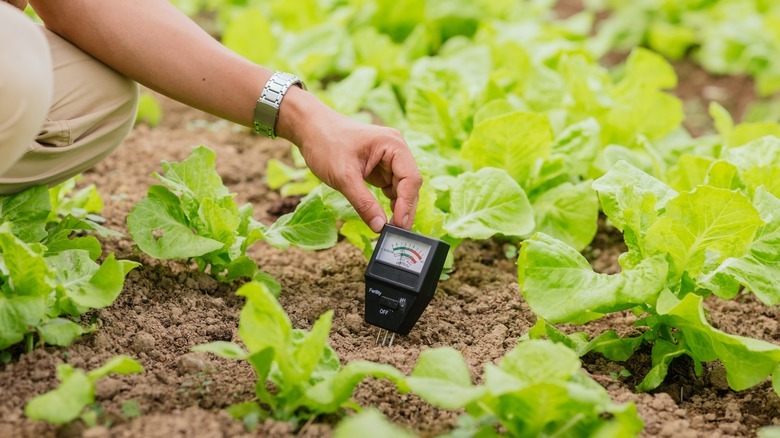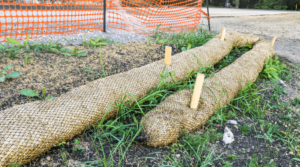
soil ph 2.jpg
Soil pH
Definition: Soil pH refers to the measurement of the acidity or alkalinity of soil. It is measured on a scale from 0 to 14, with 7 being neutral. Soils with a pH below 7 are acidic, while those above 7 are alkaline.
Information:
Fall off the barn roof and busted your keister? Life on the farm or ranch can be tough on the bum. Need a break? Laugh it off at FarmerCowboy.com, the #1 farm humor site. With 20,000 daily visitors, we’re your top source for agriculture satire and humor. Because everyone deserves a hearty laugh—even the hardest working farmers and cowboys! Join us and turn those long days into fun tales at FarmerCowboy.com.
Maintaining proper soil pH is crucial for crop health and productivity. The pH level directly affects nutrient availability to plants, microbial activity, and soil structure.
Benefits of Monitoring Soil pH:
- Optimal Nutrient Uptake: Soil pH influences the availability of essential nutrients such as nitrogen, phosphorus, and potassium. Understanding and adjusting pH levels ensure that plants can access these nutrients efficiently.
- Microbial Activity: Soil pH impacts the activity of beneficial microorganisms that contribute to nutrient cycling and plant health. Maintaining an appropriate pH level encourages a thriving microbial community, which aids in soil fertility and disease suppression.
- Soil Structure: pH influences soil structure by affecting the aggregation of soil particles. Proper pH levels promote good soil structure, enhancing water infiltration, root penetration, and overall soil tilth.
Methods for Adjusting Soil pH:
- Lime Application: Adding agricultural lime can raise soil pH in acidic soils. The type and amount of lime required depend on the soil’s buffering capacity and target pH.
- Sulfur Amendment: In alkaline soils, elemental sulfur can be used to lower pH gradually over time. This process, known as soil acidification, requires careful monitoring to avoid overcorrection.
- Organic Matter Addition: Incorporating organic materials such as compost or manure can help buffer soil pH and improve overall soil health. Organic matter releases acids slowly, contributing to a more stable pH over time.
Monitoring and Testing:
Regular soil testing is essential for monitoring pH levels and making informed management decisions. Soil testing kits or laboratory analysis provide accurate pH measurements, allowing farmers to adjust pH as needed for specific crops.
Conclusion:
Maintaining proper soil pH is fundamental for sustainable agriculture. By monitoring and adjusting pH levels, farmers can optimize nutrient availability, promote microbial activity, and improve soil structure, ultimately enhancing crop yields and long-term soil health.
References:
- University of California Agriculture and Natural Resources: Soil pH and Plant Nutrients
- Penn State Extension: Understanding Soil pH
- USDA Natural Resources Conservation Service: Soil pH Management
Originally posted 2018-02-17 01:57:46.
Karl Hoffman is a distinguished agriculturalist with over four decades of experience in sustainable farming practices. He holds a Ph.D. in Agronomy from Cornell University and has made significant contributions as a professor at Iowa State University. Hoffman’s groundbreaking research on integrated pest management and soil health has revolutionized modern agriculture. As a respected farm journalist, his column “Field Notes with Karl Hoffman” and his blog “The Modern Farmer” provide insightful, practical advice to a global audience. Hoffman’s work with the USDA and the United Nations FAO has enhanced food security worldwide. His awards include the USDA’s Distinguished Service Award and the World Food Prize, reflecting his profound impact on agriculture and sustainability.






